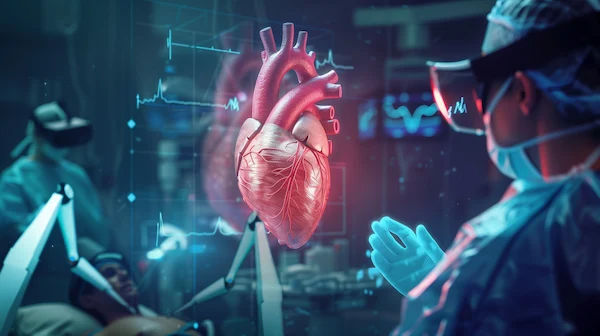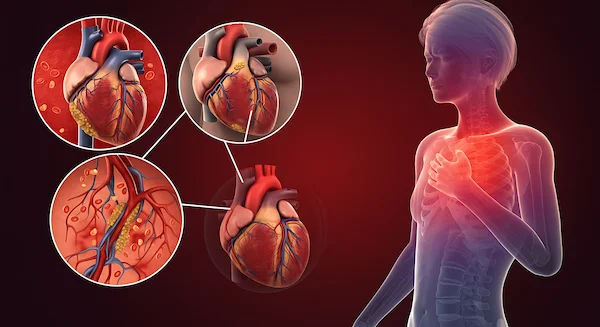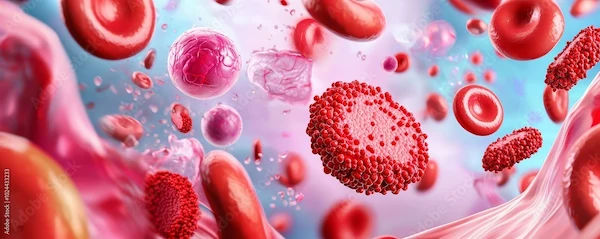- male
- 30 Years
- 20/02/2025
I'm really worried about this ongoing lightheadedness I've been dealing with for the past 8 months. It's like I'm under the influence of something, almost like alcohol, but I'm not. I've had these scary episodes where my chest hurts and my blood pressure shoots up to 150100. The ER told me it was a panic attack, and it's happened twice now. I've undergone so many testsHolter Monitor, ECG, EKG, chest and heart CT scans, even a brain MRI and countless blood tests. Everything comes back normal, including checks for anemia and thyroid issues. They did find H. Pylori, and I finished a 14-day antibiotic course for that, but otherwise, doctors say I'm fine. Yet, I can't shake these feelings and symptoms. I'm 30, 6 feet tall, and weigh 90 kg, with blood pressure often around 13590. I've even had ECGs during the pain episodes. Can you help me figure out what might be going on here?
Answered by 1 Apollo Doctors
It sounds like you have been through a thorough evaluation for your symptoms. Since all your reports have come back normal and your doctors have ruled out various possible causes, including panic attacks, it's important to consider other factors that may be contributing to your lightheadedness and other symptoms. One possible cause could be inner ear problems leading to vertigo-like symptoms. I recommend trying a medication called Meclizine (brand name Antivert) at a dose of 25-100 mg per day to help with your lightheadedness. Additionally, you may benefit from vestibular rehabilitation therapy to address any inner ear issues. It's also important to stay well-hydrated, maintain a healthy diet, and practice stress-reducing activities such as yoga or meditation. If your symptoms persist or worsen, it may be helpful to see an Ear, Nose, and Throat (ENT) specialist for further evaluation and management.
Dr. Shubham Suggests...
Consult a Cardiologist
Answered 04/07/2025
0
0


Ask Apollo
AI powered Health Chatbot
-
Panic Attacks and Anxiety
a. Consider consulting a mental health professional for anxiety management.
b. Cognitive Behavioral Therapy (CBT) and relaxation techniques may help. -
Lifestyle Modifications
a. Regular exercise and a balanced diet can improve overall well-being.
b. Ensure adequate hydration and sleep. -
Follow-Up
a. Regularly monitor blood pressure.
b. Schedule follow-ups with your primary care physician to reassess symptoms. -
Further Evaluation
a. Discuss with your doctor the possibility of vestibular disorders or other neurological evaluations if symptoms persist.
Answered 10/09/2025
0
0
More Cardiology Health Queries
View allI'm getting really tired when I dance or do even small heavy tasks, and I'm not sure why. I already had an ECG, and it came back normal. I'm just wondering if there's something else that could be causing this?
Feeling tired during physical activity could be due to various reasons, even if your ECG results are normal. One common reason for this could be iron deficiency anemia. I recommend you to take iron supplements like Ferrous Sulfate 325mg once daily after meals for a few months. Additionally, make sure you are staying hydrated and eating a balanced diet rich in iron and other essential nutrients. If the symptoms persist, further evaluation may be needed.
Answered by 1 Apollo Doctors
I've been dealing with moderate hypertension since I got diagnosed with a BP of 168122 on December 18th, and I've been put on Telma 40. But for the past three days, I've been having this awful headache and pain in my cheek, only on the left side of my face. My blood pressure is still at 150115 even though I've been taking the medicine for these three days. Should I be concerned about this, and what should I do next?
Given your recent diagnosis of moderate hypertension and the current blood pressure readings of 150115 despite taking Telma 40 (telmisartan), it is essential to address this promptly. Your persistent headache and left-sided cheek pain might indicate uncontrolled hypertension, which can lead to severe complications if not managed appropriately. Firstly, I recommend you seek immediate medical attention to evaluate your symptoms. Your healthcare provider might need to adjust your blood pressure medication or add additional antihypertensive agents to better control your blood pressure. They may also want to investigate the cause of your headache and cheek pain to rule out other potential issues, such as sinusitis or trigeminal neuralgia. In the meantime, continue taking your medication as prescribed and avoid any activities that could elevate your blood pressure further. Please contact your healthcare provider as soon as possible to discuss these symptoms.
Answered by 1 Apollo Doctors
I'm currently 30 weeks pregnant and I've been told there's an increased RS ratio in V1, which might suggest an early transition or a posterior infarct. I'm taking labetalol 100 and Ecosprin 75. I'm really worried about what this means for me and the baby. Could you help me understand this better?
a larger R wave compared to the S wave
Answered by 1 Apollo Doctors
Disclaimer: Answers on Apollo 247 are not intended to replace your doctor advice. Always seek help of a professional doctor in case of an medical emergency or ailment.

 Could anxiety cause my lightheadedness?
Could anxiety cause my lightheadedness? 


